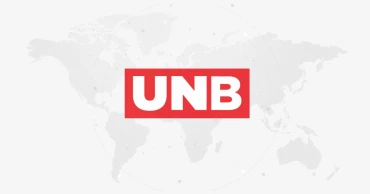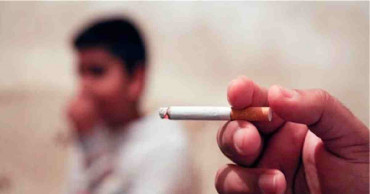Budget Bangladesh
Budget: Road to Graduation: Finance Minister shares opportunities, challenges
Finance Minister AHM Mustafa Kamal on Thursday said Bangladesh's image in the outside world will brighten after the graduation to a developing economy, which will bring foreign investment and create jobs.
“Foreign investment will likely increase, which will lead to massive infrastructure development in the country, job creation, and improved living standards,” he said.
Also Read: Tk6 trillion budget in the works for 2021-22; govt eyes on capital expenditure
In his budget speech at Parliament, the Finance Minister said the graduation will increase the country's credit rating, which will enable Bangladesh to get low interest loans in foreign currency by issuing sovereign bonds.
He, however, said all the international opportunities that Bangladesh is currently enjoying as a least developed country will either be unavailable or be reduced in many cases after the transition from a least developed country.
These include: In the case of trade, duty-free and quota-free market facilities; exemption from patent protection to the pharmaceutical industry under the WTO's Trade Related Intellectual Property (TRIPS) Agreement; and subsidies on export products/industries will be reduced. Foreign loans and grants on concessionary terms will be reduced.
Also Read: Cabinet approves proposed budget for new fiscal
He said the graduation will also increase productivity and competitiveness in foreign trade, which will help increase export earnings.
The Minister said absence of benefits as a least developed country will create a kind of compulsion to export diversification, resulting in the creation of new export products and markets.
He said the product supply chain will be integrated and will create incentives and obligations to produce high value and high value added products.
The Minister said the massive increase in the demand for skilled manpower will create an opportunity to create a workforce suitable for the Fourth Industrial Revolution.
“It will be easy to move the country forward by implementing a unified and inclusive development strategy with all stakeholders, including development and trade partners, the private sector and civil society,” he said.
The Finance Minister said the government has taken various steps to address the challenges that Bangladesh will face as a result of its graduation from an LDC.
At the request of the government, the UNCDP has recommended that against the backdrop of COVID-19 pandemic, the preparation period for the transition will be five years instead of three.
During this period, that is, until 2026, all international facilities will continue.
The LDC Group of the World Trade Organization (WTO) has put forward a proposal to ensure that all trade facilities pertaining to LDCs remain in force for another 12 years after transition.
Bangladesh has actively participated in this process, and is continuing its efforts to get this proposal accepted, said the Finance Minister.
He said the government has already taken steps to avail the advantage of GSP+ in EU countries after the graduation.
Initiatives have already been taken to sign preferential trade agreements with Bhutan and sign similar agreements with 11 other countries, the Minister said.
The government has already taken steps to set up 100 special economic zones, high-tech parks for technological advancement and implementation of various mega projects including the Padma Bridge, which will help create new jobs and increase national income, he said.
4 years ago
Tobacco products to become more affordable: Anti-tobacco platforms
In a quick reaction to the proposed national budget of 2021-22 fiscal year, two anti-tobacco platforms – PROGGA and Anti-Tobacco Media Alliance (ATMA) on Thursday claimed that tobacco products will become more affordable in the upcoming fiscal year.
The proposed budget has kept the prices unchanged for low-tier cigarettes which constitute around 72 percent of the cigarette market. The per capita income of the country, however, saw a 9 percent increase since last fiscal year, they said.
Also Read: National Budget: Progga, ATMA for hiking tobacco goods
The anti-tobacco platforms sent their reaction to the media after Finance Minister AHM Mustafa Kamal started unveiling the proposed budget in Parliament in the afternoon.
The proposed budget, if implemented, will considerably reduce the real prices of cigarettes and encourage the poor and the youth demographic to get hooked on the deadly addiction of smoking.
The same goes for bidi and smokeless tobacco (jarda and gul) where the taxes and prices have also been kept unchanged. This would put the low income people, particularly women, into greater health risk.
Also Read: Budget: Prices of tobacco products up, gold down
If the proposed budget is finally passed, tobacco companies will be the only beneficiaries and the government will lose revenue opportunities.
Such a budget will only encourage tobacco business and ignore hundreds of thousands of deaths, impairment, massive socioeconomic and environmental damage this industry causes, they said.
The proposed budget has kept the prices of and taxes on low and medium categories cigarettes unchanged. The prices for 10 sticks of high and premium tier cigarettes have been increased by only BDT 5 (5.2 percent hike) and BDT 7 (5.5 percent hike), setting the prices at Tk 102 and 135 respectively.
The existing 65 percent supplementary duty has been unchanged. This means the prices of per stick high and premium tier cigarettes will go up by only 50 paisa and 70 paisa respectively, which is a very negligible increase compared to the increase in per capita income.
On the contrary, due to faulty tax structure, tobacco companies will pocket a sizable portion of this increased price, and thus they will be encouraged in death trade, which is quite alarming.
However, if the government imposed tiered specific supplementary duty as demanded by anti-tobacco organizations, it would have generated additional revenues of BDT 3400 crores, which could have been used to deal with the losses related to coronavirus pandemic, said the platforms.
Bidi and smokeless tobacco (jarda and gul), known enemies to public health, have seen no change in their prices and taxes in the proposed budget. Considering the rise in per capita income, these harmful products will become more affordable.
This would undoubtedly put the low income people, particularly women, into greater health risk.
Currently, more than 50 percent of the country's 37.8 million adult tobacco users use smokeless tobacco products. It is concerning that despite such a large user base, revenues from smokeless tobacco items constitute less than 1 percent of total tobacco revenues.
The government has been losing opportunities of earning additional revenues from this sector. It is impossible to achieve a tobacco-free Bangladesh while giving tobacco companies free passes like this.
“The proposed budget does not reflect any proposals or suggestions from anti-tobacco organizations. The only thing it safeguards is tobacco companies' interests. Once implemented, it will make tobacco products more affordable and increase tobacco-related deaths and other losses. So, we urge the government to incorporate our price and tax proposals in the final budget, ”said PROGGA (Knowledge for Progress) Executive Director ABM Zubair in his reaction to the proposed budget.
Among others, the proposed budget keeps both the existing 45 percent corporate tax on all tobacco companies (cigs, bidis, SLTs) and 2.5 percent Surcharge on tobacco manufacturer's income unchanged.
According to WHO, smokers are more likely to get severely ill from covid-19 infection than non-smokers. Despite all such warnings, the proposed budget failed to make any effort to discourage use of tobacco products for its lack of effective price and tax measures which is utterly frustrating for anti-tobacco activists, they said.
4 years ago



